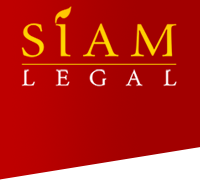Foreign Business Licenses
According to Section 17 of the Foreign Business Act, B.E. 2542 (1999), foreigners may apply for a license to operate businesses that would normally be prohibited to them under Lists 2 and 3 of the Act. Between March 3, 2000 to February 29, 2012, a total of 2,928 licenses were issued to foreigners (1,091 licenses to Japanese businesses, 102 licenses to U.K. businesses, and only 91 were issued to U.S. businesses).*
In a span of 12 years, those numbers are relatively small and are indicative of the great difficulty in obtaining a foreign business license. Although the procedure appears straightforward on paper, the foreign applicant is required to meet burdensome conditions, such as explaining how the proposed business would be beneficial in terms of technology transfer. In fact, the application for a foreign business license is so demanding that most foreign businesses normally would opt to find other means to do business, such as establishing a majority Thai-owned firm. However, foreign corporations desiring to establish a Representative Office in Thailand or Regional Office in Thailand will have to contend with the foreign business licensing process since those types of business organizations are considered a “service business” under subsection 21 of List 3 of the Foreign Business Act and are therefore prohibited without a license under Section 17.

The applicant must first fill out a short standard form, Form Tor. 2, provided by the Department of Business Development and then collect the required documents. One of the documents required is a “declaration of details” concerning the proposed business. In this declaration, the applicant must specify such items as the characteristics of the business, stages of operation, projected revenue and expenditures for the next three years, its technology transfer plan, its workforce, and its views on how the proposed business would affect Thailand, either in terms of safety and security, economy and social development, public order and morals, arts and culture, etc.
The technology transfer plan requirement, in particular, should be given some attention since it is likely to be the biggest hurdle for most applicants to overcome. In order to fulfill this requirement, the applicant must specify how it will transfer any “know-how”, i.e. a technique, skill, or means useful in business endeavors, to a Thai national employed by the applicant, employed by the applicant’s client or contracting partner, and also employed by a Thai educational institution or a similar institution. For example, the applicant may explain that it plans to have foreign experts give regular training sessions to its own Thai employees, Thai employees of its client, and representatives from a Thai university, regarding how to repair and modify a type of sophisticated machinery to be used in its manufacturing operations. This technology transfer plan would likely pass foreign business licensing requirements.
The technology transfer requirement should give prospective applicants a clear idea of whether applying for a foreign business license is a realistic option. Ideally, if a certain company is operating in a high-tech industry and is offering a type of cutting-edge service or product for which there are not yet any providers in Thailand, then it is quite likely that that company would qualify for a foreign business license. However, if a company is seeking to operate a type of business more along the lines of a bar or restaurant (which is prohibited to foreigners by subsection 19 of List 3), then a foreign business license would not be a viable option unless and until the Ministry of Commerce removes the technology transfer requirement. In the meantime, if a company cannot fulfill this requirement, it would be a better option for it to go into business with a majority of its shares genuinely held by Thai nationals.
* “Licenses Issued Under FBA 1999 Classified by Nationalities and Business Sector”, Department of Business Development, Ministry of Commerce.
Category: Business in Thailand, Company Law, Company Registration
About the Author (Author Profile)
Siam Legal is an international law firm with experienced lawyers, attorneys, and solicitors both in Thailand law and international law. This Thailand law firm offers comprehensive legal services in Thailand to both local and foreign clients for Litigation such as civil & criminal cases, labor disputes, commercial cases, divorce, adoption, extradition, fraud, and drug cases. Other legal expertise of the law firm varied in cases involving corporate law such as company registration & Thailand BOI, family law, property law, and private investigation.











